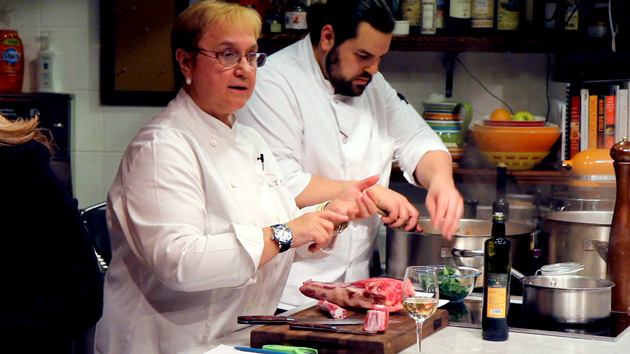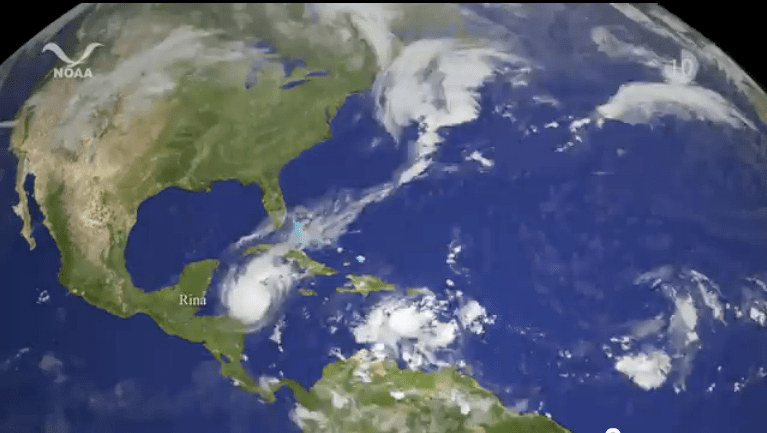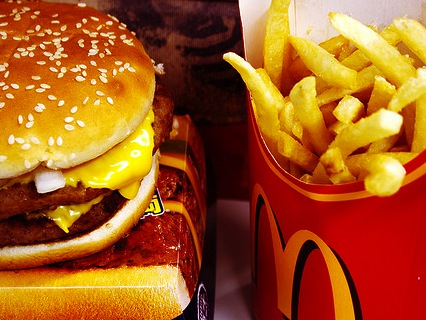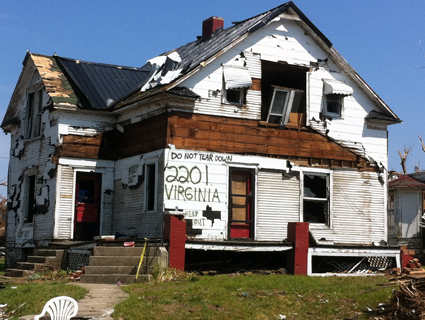A weather presenter and a celebrity chef walk into a kitchen…that was the novel hook for this cooking class (and, hell, it’s not often Climate Desk gets to film a cooking show).
This is about as far away from the dry, cracked soil of a Texas cattle ranch as it gets: Fifth Avenue, New York City. At a seminar that cost $225 a head, a small selection of guests learned about the impact of 2011’s record number of billion dollar disasters—there were 12, including the ongoing drought in Texas—and how to cook around them using substitute ingredients. While author and restaurateur Lidia Bastianich talked about the ingredients affected by last year’s weather, TV meteorologist Bonnie Schneider (you’ve probably seen her on CNN) explained how climate change is causing tougher farming conditions and leaving Americans with bigger food bills.
The take-out lesson? Disaster cooking is about more than simple substitution.
“Recycling food is not about reheating food,” Bastianich said. “It’s about making something new.” After demonstrating how to create a delectable ragout, she added, “There’s going to be a run on oxtails!”

Lidia Bastianich at Eataly, New York: James West
















